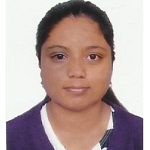CSIR - Centre for Cellular & Molecular Biology
Council of Scientific and Industrial Research
Ministry of Science & Technology, Govt. of India


Senior Principal Scientist
Email: schauhan@ccmb.res.in
Phone: 04027192635
Research Interests
Our body cells deal with a large number of external and internal threats. The external threats involve invasion of pathogenic bacteria, viruses, and fungi. The internal threats involve damaged cell organelles for example mitochondria. Damaged organelles or other internal threats including inflammation if not cleared could cause cell death or could lead to genomic mutations. Significant genomic alteration could make cells cancerous.
Our body has different mechanisms to take care of these threats and mostly the processes/pathways are similar whether the threats are internal or external. Our lab tries to understand how these mechanisms work and whether we can artificially boost (therapy) these mechanisms to remove or reduce threats.
Specifically, our lab works on autophagy and inflammatory pathways. Autophagy is a cell autonomous cleaning process, which removes both internal and external threats and allows the cells to perform their work efficiently. We know that excess inflammation is highly detrimental and could lead to autoimmune diseases. We are interested how autophagy reduces inflammation of the cells and prevent inflammatory cell death and autoimmunity.
In addition, our lab is interested in knowing how host anti-viral innate immune system works. One of the most efficient host anti-viral systems is interferon response. We are interested understanding how different interferon induced proteins could kill or restrict viral growth. Interestingly, the interferon response is not only anti-viral (external threat) but also anti-cancer (internal threat). Our lab is also interested in understanding the anti-cancer role of interferon stimulated proteins.
Moreover, we are taking both unbiased and structure-based approaches to screen and identify small molecules that could boost anti-viral and anti-cancer immunity. We use multiple biochemical, cell biological and molecular biological techniques to elucidate the mechanisms by which small molecules could enhance cell immunity.
Broad areas of research in lab:
For more details please visit https://www.autophagylab.com/
Selected Publications
Chauhan NR, Kundu S, Chattopadhyay D, Bal R… Chauhan S. Transgenic Mouse Models Support a Protective Role of Type I IFN Response in SARS-CoV-2 infection-related Lung Immunopathology and Neuroinvasion. Cell Reports, 2023 Oct 23;42(11):113275.
Jena KK, Mehto S, Yadav R, Priyadarsini S, Samal P, Krishna S, Dhar K, Jain A, Chauhan NR, Murmu KC, Bal R, Sahu R, Jaiswal P, Sahoo BS, Patnaik S, Kufer TS, Rusten TE, Chauhan S, Prasad P, Chauhan S. Selective Autophagy of RIPosomes Maintains Innate Immune Homeostasis during Bacterial Infection. EMBO J. 2022 Dec 1;41(23):e111289.
Nath P, Chauhan NR, Jena KK, Datey A, Kumar ND, Mehto S, De S, Nayak TK, Priyadarsini S, Rout K, Bal R, Murmu KC, Kalia M, Patnaik S, Prasad P, Reggiori F, Chattopadhyay S*, Chauhan S*. Inhibition of IRGM establishes a robust antiviral immune state to restrict pathogenic viruses. EMBO Rep. 2021 Sep 1:e52948. (Cover page article)
Kolapalli SP, Sahu R, Chauhan NR, Jena KK, Mehto S, Das SK, Jain A, Rout M, Dash R, Swain R, Lee DY, Rusten TE, Chauhan S*, Chauhan S*. RNA binding RING E3-ligase DZIP3/hRUL138 is a novel driver of cell cycle and cancer progression by employing a unique mechanism to stabilize Cyclin D1. Cancer Research, 2021 Jan 15;81(2):315-331. (Cover page article)
Jena KK, Mehto S, Nath P, Chauhan NR, Sahu R, Dhar K, Das SK, Kolapalli SP, Murmu KC, Jain A, Krishna S, Sahoo BS, Chattopadhyay S, Rusten TE, Prasad P, Chauhan S, Chauhan S*. Autoimmunity gene IRGM suppresses cGAS-STING and RIG-I-MAVS signaling to control interferon response. EMBO Rep. 2020 Jul 27:e50051.
Mehto S, Jena KK, Nath P, Chauhan S, Kolapalli SP, Das SK, Sahoo PK, Jain A, Taylor GA, Chauhan S*. The Crohn's disease risk factor IRGM limits NLRP3 inflammasome activation by impeding its assembly and by mediating its selective autophagy. Molecular Cell. 2019 Feb 7;73(3):429-445.e7. (Publication highlighted in the issue)
Education & Experience
| P.G: | MSc (Biotechnology) ; Guru Nanak Dev University, ; 2004 |
| Ph.D: | Molecular Microbiology ; AIIMS, New Delhi, India ; 2009 |
| Post.Doc: | MD Anderson Cancer Center, USA ; (2009-2012)
|
| Experience: |
|
|
data Found.... data Found.... data Found.... data Found.... data Found.... data Found.... data Found.... data Found.... data Found.... data Found.... data Found.... data Found.... | |
No data Found.... No data Found.... No data Found.... No data Found.... No data Found....No data Found.... No data Found.... No data Found.... No data Found.... No data Found....
| Title | Journal | Year |
|---|---|---|
| Transgenic Mouse Models Support a Protective Role of Type I IFN Response in SARS-CoV-2 infection-related Lung Immunopathology and Neuroinvasion | Cell Reports, 2023 Oct 23;42(11):113275. | 2024 |
| RIPosomes are targets of IRGM-SQSTM1-dependent autophagy | Autophagy | 2023 |
| SMARCD1 negatively regulates myeloid differentiation of leukemic cells via epigenetic mechanisms. | Blood Adv. 2022. | 2022 |
| Selective Autophagy of RIPosomes Maintains Innate Immune Homeostasis during Bacterial Infection. | EMBO J Dec 1;41(23):e111289. (Cover page article) | 2022 |
| RNA binding RING E3-ligase DZIP3/hRUL138 is a novel driver of cell cycle and cancer progression by employing a unique mechanism to stabilize Cyclin D1. | Cancer Research,2021 Jan 15;81(2):315-331. (Cover page article) | 2021 |
| Inhibition of IRGM establishes a robust antiviral immune state to restrict pathogenic viruses. | EMBO Rep. 2021. | 2021 |
| IRGM Links Autoimmunity to Autophagy. | Autophagy.2020 Aug 19. PMID: 32813580. | 2020 |
| Autoimmunity gene IRGM suppresses cGAS-STING and RIG-I-MAVS signaling to control interferon response. | EMBO Rep. 2020 Jul 27:e50051. | 2020 |
| TRIM16 governs the biogenesis and disposal of stress-induced protein aggregates to evade cytotoxicity: implication for neurodegeneration and cancer. | Autophagy. 2019 May;15(5):924-926. | 2019 |
| IRGM restrains NLRP3 inflammasome activation by mediating its SQSTM1/p62-dependent selective autophagy. | Autophagy.?2019 Jun 20:1-3. | 2019 |
| The Crohn's disease risk factor IRGM limits NLRP3 inflammasome activation by impeding its assembly and by mediating its selective autophagy. | Molecular Cell. 2019 Feb 7;73(3):429-445.e7. | 2019 |
| TRIM16 controls assembly and degradation of protein aggregates by modulating the p62-NRF2 axis and autophagy. | EMBO J. 2018 Sep 14;37(18). | 2018 |
| Galectins and TRIMs directly interact and orchestrate autophagic response to endomembrane damage. | Autophagy. 2017 Jun 3;13(6):1086-1087. | 2017 |
| TRIMs and Galectins globally cooperate and TRIM16 and Galectin-3 codirect autophagy in endomembrane damage homeostasis. | Developmental Cell, 2016. | 2016 |
| Mechanism of action of the tuberculosis and Crohn disease risk factor IRGM in autophagy. | Autophagy. 2015 Aug 27:0. PMID: 26313894 | 2015 |
| IRGM governs the core autophagy machinery to conduct antimicrobial defense. | Molecular Cell. Volume 58, Issue 3, p507-521, 7 May, | 2015 |
| Pharmaceutical screen identifies novel target processes for activation of autophagy with a broad translational potential. | Nature Communication. 2015 Oct 27;6:8620. doi: 10.1038/ncomms9620. | 2015 |
| Neutral lipid stores and lipase PNPLA5 contribute to autophagosome biogenesis. | Current Biology (Cell Press). 2014 Mar 17;24 (6):609-20. | 2014 |
| TRIM proteins regulate autophagy and can target autophagic substrates by direct recognition. | Developmental Cell. 2014 Aug 25; 30(4):394-409. | 2014 |
| ZKSCAN3 Is a Master Transcriptional Repressor of Autophagy. | Molecular Cell. Apr 11;50(1):16-28. | 2013 |
| Comprehensive insights into Mycobacterium tuberculosis DevR (DosR) regulon activation switch. | Nucleic Acids Research. 2011 Sep 1;39(17):7400-14. | 2012 |
| Regulation of u-PAR gene expression by H2A.Z is modulated by the MEK-ERK/AP-1 pathway. | Nucleic Acids Research. 2012 Jan; 40 ?? (2):600-13. | 2012 |
| K182G substitution in DevR or C(8) G mutation in the Dev box impairs protein-DNA interaction and abrogates DevR-mediated gene induction in Mycobacterium tuberculosis. | FEBS J. 2011 Jun; 278(12):2131-9. | 2011 |
| Analysis of transcription at the oriC locus in Mycobacterium tuberculosis. | Microbiol Res. 2011 Sep 20;166(6):508-14. | 2011 |
| A single-nucleotide mutation in the -10 promoter region inactivates the narK2X promoter in Mycobacterium bovis and Mycobacterium bovis BCG and has an application in diagnosis. | FEMS Microbiol Lett.2010, Feb;303(2):190-6. | 2010 |
| CmtR, a cadmium-sensing ArsR-SmtB repressor, cooperatively interacts with multiple operator sites to autorepress its transcription in Mycobacterium tuberculosis. | FEBS J. 2009, Jul; 276(13):3428-39. | 2009 |
| Powerful induction of divergent tgs1-Rv3131 genes in Mycobacterium tuberculosis is mediated by DevR interaction with a high-affinity site and an adjacent cryptic low-affinity site. | Journal of Bacteriology. 2009, Oct;191(19):6075-81. | 2009 |
| Cooperative binding of phosphorylated DevR to upstream sites is necessary and sufficient for activation of the Rv3134c-devRS operon in Mycobacterium tuberculosis: Implication in the induction of DevR target genes. | Journal of Bacteriology, June 2008, p. 4301?4312, 190, No.12. | 2008 |
| Interaction of DevR with Multiple Binding Sites Synergistically Activates Divergent Transcription of narK2-Rv1738 Genes in Mycobacterium tuberculosis. | Journal of Bacteriology. Aug 2008, p. 5394-5403, 190, No. 15. | 2008 |
| Transcription and autoregulation of Rv3134c-devR-devS operon of Mycobacterium tuberculosis. | Microbiology(2005), 151, 4045-4053. | 2005 |


2635
schauhan@ccmb.res.in

2640
jagamohan@ccmb.res.in

2950
amitkumar@ccmb.res.in

2640
sameekshya@ccmb.res.in

2640
santoshdas@ccmb.res.in

2640
vennela@ccmb.res.in

2640
sahidur@ccmb.res.in

2640
ashwanikumars@ccmb.res.in

2640
soumyakundu@ccmb.res.in

2640
rayalasarika@csirccmb.org

2640
devender@csirccmb.org

2640
prince@csirccmb.org

2640
souradeepa@csirccmb.org

2640

2640
kollori.dhar@ccmb.res.in

2640
kanitha@csirccmb.org

2640
sreyank@csirccmb.org

